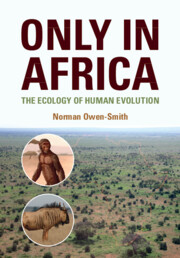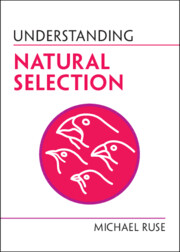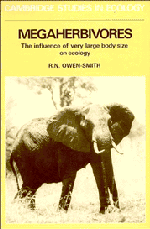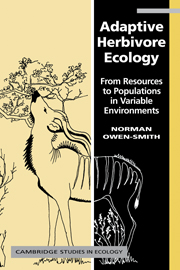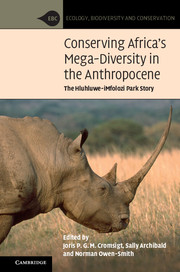Only in Africa
That humans originated from Africa is well-known. However, this is widely regarded as a chance outcome, dependant simply on where our common ancestor shared the land with where the great apes lived. This volume builds on from the 'Out of Africa' theory, and takes the view that it is only in Africa that the evolutionary transitions from a forest-inhabiting frugivore to savanna-dwelling meat-eater could have occurred. This book argues that the ecological circumstances that shaped these transitions are exclusive to Africa. It describes distinctive features of the ecology of Africa, with emphasis on savanna grasslands, and relates them to the evolutionary transitions linking early ape-men to modern humans. It shows how physical features of the continent, especially those derived from plate tectonics, set the foundations. This volume adequately conveys that we are here because of the distinctive features of the ecology of Africa.
- Explains how human evolution relates to features of African Ecology
- Demonstrates how ecology is grounded in climate, geology and soils
- A comprehensive, full-colour work with over 90 illustrations demonstrating linkages between physical Africa, savanna vegetation, grazing herbivores and early hominins
Reviews & endorsements
... the book is exceptionally well written, and very recommendable as a foundational introduction to modern Africa savanna ecology for a readership ranging from undergraduates to professional researchers in paleoanthropology.' Manuel Domínguez-Rodrigo, Evolutionary Anthropology
‘In Only in Africa Owen-Smith presents us with copious evidence of the complexity of interactions within and between species of plants, herbivores, and carnivores, coherently linking the trophic levels. He also makes a compelling case that the early stages of human evolution could only have happened in Africa. For those willing to accept that their knowledge of relevant contemporary African ecosystems and their critical role in human evolution could do with some updating and refreshing, Norman Owen-Smith's new book provides just the help they need. Its importance for paleoanthropology cannot be exaggerated.’ Bernard Wood, Journal of Human Evolution
‘a cross-disciplinary textbook that provides a natural historian's overview of the ecology of Africa, with a gradually sharpening focus on the primates that originated there and evolved into modern humans … Owen-Smith provides a refreshing look at a continent in its entirety and all the life it has generated, facilitating a perspective quite different from the usual focus on only one particular aspect of that life … Highly recommended.’ L. Swedell, Choice Connect
‘Norman Owen-Smith’s new book Only in Africa is a most welcome contribution … it provides a much-needed textbook for upper-level undergraduate to graduate courses on the ecology of human origins.’ John Rowan, The Quarterly Review of Biology
Product details
December 2021Paperback
9781108959667
376 pages
244 × 170 × 19 mm
0.74kg
Available
Table of Contents
- Preface
- Foreword
- List of abbreviations
- Part I. The physical cradle: Land forms, geology, climate, hydrology and soils:
- 1. High Africa: Eroding surfaces
- 2. Climate: Rainfall seasonality
- 3. Water in rivers, lakes and wetlands
- 4. Bedrock geology: Volcanic influences
- 5. Soils: Foundations of fertility
- Part II. The savanna garden: Grassy vegetation and plant dynamics:
- 6. Forms of savannah
- 7. How savanna trees and grasses grow and compete
- 8. Plant demography and dynamics: Fire traps
- 9. Paleo-savannas: Expanding grasslands
- Part III. The big mammal menagerie: Herbivores, carnivores and their ecosystem impacts:
- 10. Niche distinctions: resources versus risks
- 11. Big fierce carnivores: Hunting versus scavenging
- 12. Herbivore abundance: Bottom-up and top-down
- 13. How large herbivores transform savanna ecosystems
- 14. Paleo-faunas: Rise and fall of the biggest grazers
- Part IV. Evolutionary transitions: From primate ancestors to modern humans:
- 15. Primate predecessors: From trees to ground
- 16. Primate ecology: From forests into savannas
- 17. How an ape became a hunter
- 18. Cultural evolution: From tools to art and genes
- 19. Reticulate evolution through turbulent times
- 20. Prospects for a lonely planet
- Index.

